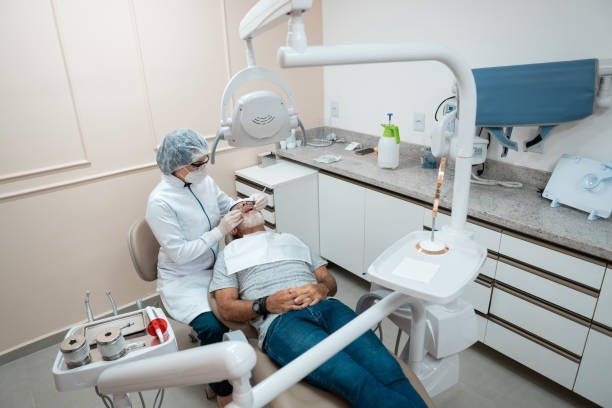Maintaining a radiant smile goes beyond the daily ritual of brushing and flossing. Regular dental cleanings are a cornerstone of oral hygiene — but how frequently should these professional services be scheduled? The answer isn’t one-size-fits-all; it’s nuanced, influenced by personal dental health, habits, and even genetic factors.
Standard Recommendations for Dental Cleanings
Dentists generally advise that you should have your teeth professionally cleaned every six months. Getting your teeth cleaned this often is a precautionary measure. It helps stop plaque and tartar from accumulating, which can cause tooth decay and gum disease. By keeping to this schedule, your dentist can also spot and address any small problems before they become more urgent and complicated.
-
Why Clean Twice a Year: When you have your teeth cleaned every six months, it helps to remove the plaque and tartar that brushing at home can miss. Plaque is a sticky film of bacteria that can harden into tartar if not removed. Regular cleanings help to manage these substances and maintain good oral health.
-
Preventive Care Benefits: These regular visits are not just for cleaning; they’re a chance for dentists to observe your teeth. If your dentist detects any signs of decay or gum issues early on, treatment can be simpler and less invasive.
Customizing Cleaning Schedules
While the twice-annual guideline is standard, there are times when a different schedule may be suggested. For some people with specific dental issues, a dentist may recommend more frequent visits. Others with excellent dental health and a low risk of gum disease or cavities may be advised that less frequent visits are appropriate for them.
-
More Frequent Visits for Special Cases: If you have a condition like gum disease or you are at a higher risk of developing cavities, the dentist might want to see you more often. More regular cleanings can be a critical part of managing these conditions.
-
Personalizing Your Dental Care Plan: Everyone’s mouth is different, so your dentist may tailor your cleaning schedule to fit your individual needs. It is essential to follow the cleaning schedule your dentist recommends for the healthiest teeth and gums.
Individual Needs May Vary
While two cleanings per year is a common guideline, individual needs differ greatly. Various factors may increase the frequency of required cleanings:
-
Gum disease history or current conditions may necessitate more frequent cleanings to keep on top of periodontal health.
-
Individuals with a propensity for cavities or plaque build-up might also benefit from additional appointments.
-
A strong family history of dental issues can be a reason to schedule more regular cleanings.
Personal Dental Hygiene
One’s oral hygiene practices at home significantly impact the necessary frequency of professional dental cleanings. Impeccable brushing, flossing, and perhaps using an antimicrobial mouthwash can lengthen the interval between visits. However, less than optimal care at home usually translates to a need for more regular professional intervention.
Intrinsically linked to dental cleanliness is the proper care of dental work such as crowns, bridges, or dentures. If you’re looking for specialized care like dentures, find a denturist in Ottawa who possesses the expertise to help maintain your dental appliances.
Lifestyle Factors Influencing Dental Health
Lifestyle choices can directly affect oral health. Smoking, consuming sugary or acidic foods, and even some medications result in a greater demand for dental attention. Adjustments in the number of cleanings might need to be made to combat these risks.
Risks of Infrequent Dental Cleanings
Minimizing the number of dental cleanings may lead to consequences such as:
-
Increased risk of gum disease and tooth decay due to unchecked tartar build-up.
-
More invasive and costly dental procedures down the line if problems are not detected early on.
-
Potential for overall health complications, as poor dental health can contribute to issues such as heart disease and diabetes.
What to Expect During a Dental Cleaning
A dental cleaning typically involves the removal of plaque and tartar, a thorough cleaning of the teeth, and a polish to remove surface stains. The cleaning may be coupled with an exam to check for signs of decay, gum disease, or other oral health issues.
Advanced care, including deep cleanings or scaling and root planing, may be necessary for those with existing periodontal disease. If you’re curious about a comprehensive dental care plan, you might want to look here.
Communicating with Your Dental Professional
Open communication with your dentist is pivotal in determining the optimal frequency of cleanings. They can provide personalized advice based on your unique dental history, current oral health, and individual risk factors.
Maximizing the Benefits of Your Dental Cleanings
To make the most out of each cleaning session, consider the following:
-
Do not hesitate to ask your dentist about proper brushing and flossing techniques.
-
Discuss any changes in your oral health since your last visit, no matter how minor they seem.
-
Consider a fluoride treatment or dental sealants if you’re at high risk for decay.
Remember, these dental sessions are more than just a cleaning; they’re a preventative measure that could save you from future dental issues and contribute to your overall health.
Reviewing Dental Insurance Plans
Dental insurance often dictates the frequency of cleanings due to coverage limitations. Review your plan and discuss with your provider how you can best utilize your benefits for maximum dental care without compromising on the number of necessary visits.
To End
Maintaining dental health requires a proactive approach, and regular professional cleanings are integral to a comprehensive oral care strategy. Balance the standard advice with a thorough assessment of your dental health and habits. By teaming with your dental professional and staying informed about your own needs, you’ll foster a healthier mouth and a dazzling smile.



